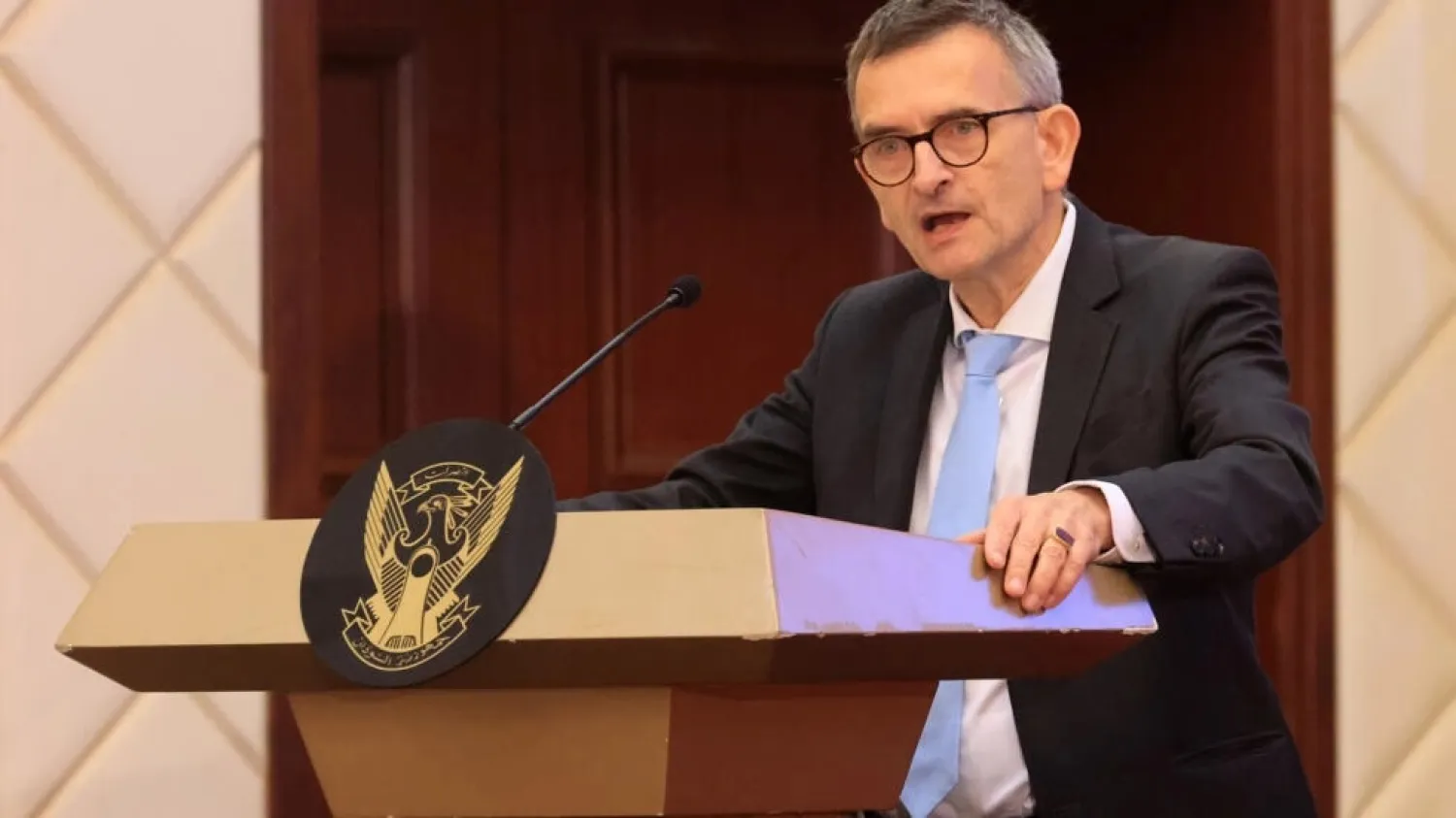The United Nations Integrated Transition Support Mission in Sudan (UNITAMS) is concerned about public threats to assassinate its head, Volker Perthes, expressing concern on Tuesday about a request for a fatwa seeking to assassinate him.
UNITMAS spokeswoman May Yaqoubi said in a press release that the mission is deeply concerned about a videotape circulating on social media showing a man speaking at a public event in Khartoum and asking for a fatwa to be issued allowing him to assassinate the UN envoy.
In a video on social media, a man is seen speaking to a gathering that included politicians loyal to ousted President Omar al-Bashir.
"I volunteer to assassinate Volker, and I request a fatwa (religious legal opinion) to make his blood permissible," the man said, referring to Perthes.
The statement criticized the "language of incitement and violence," warning that it would "only deepen divisions on the ground, but it will not deter the mission from carrying out its duties."
It welcomed the voices condemning the video and its content, calling on the Sudanese authorities to take legal action and ensure a proper investigation.
The Special Representative affirmed the mission's commitment to supporting Sudan in achieving a political transition to democratic rule, as set out in its mandate issued by the Security Council.
Meanwhile, US Secretary of State Antony Blinken spoke over the phone with Chair of the Sovereign Council General Abdul Fattah al-Burhan, highlighting US support for Sudanese democratic aspirations and urging the swift formation of a civilian-led transitional government.
Media affiliated with the Sovereign Council said the officials reviewed Sudanese-US relations and their future.
Burhan briefed Blinken on the progress of the political process and the challenges encountered by the country.
Blinken stressed that the US supported Sudan's political process and vowed to assist in overcoming the hurdles hindering the country's progress.









